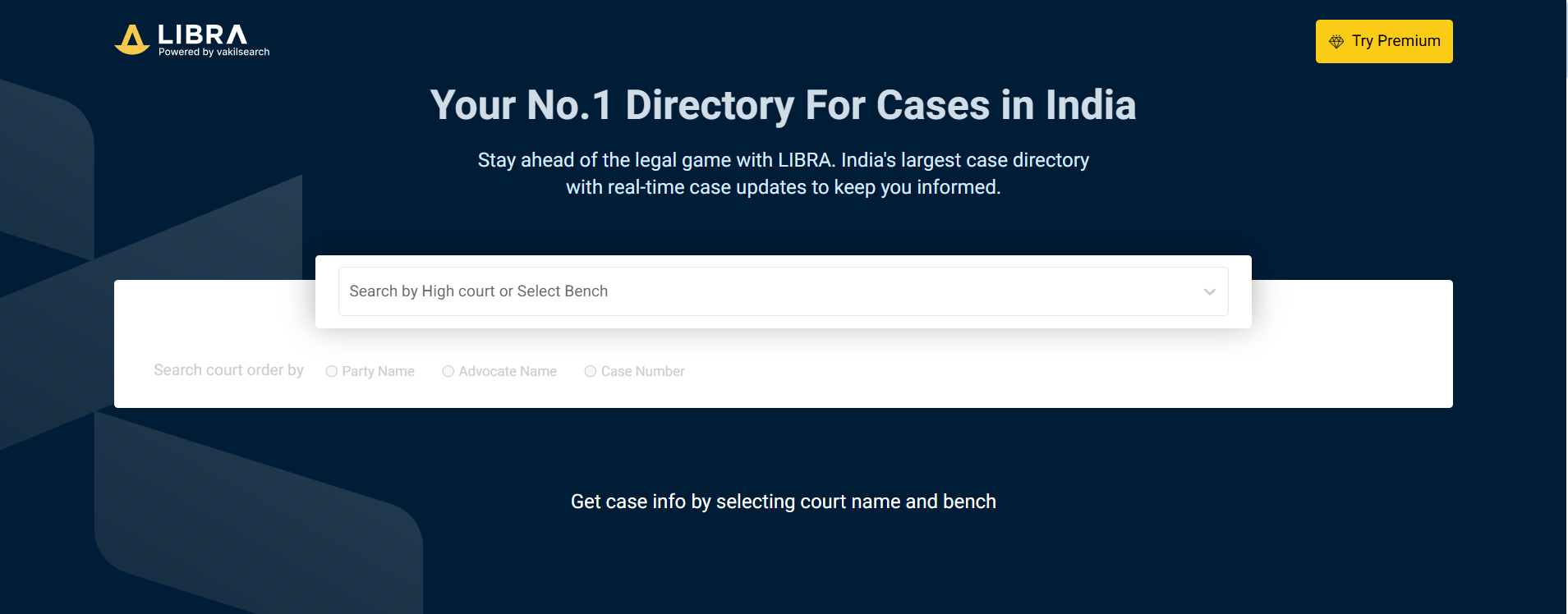Explore premier resources for Indian case laws. Simplifying legal research, our guide equips you to access, comprehend, and leverage vital legal information
Finding Indian Case Laws:
In the digital age, Finding Indian Case Laws has become more convenient than ever. Numerous online platforms and databases serve as invaluable resources for legal professionals, researchers, and students. Prominent websites like Manupatra, Indian Kanoon, and Legal Crystal offer extensive databases of judgments from various courts. These platforms allow users to search for cases based on keywords, statutes, or even specific judges, streamlining the research process.
Legal databases provided by the Supreme Court of India and various High Courts further enhance the accessibility of case laws. These databases not only offer a vast repository of judgments but also provide advanced search features and categorization, making it easier to pinpoint relevant cases. Legal research platforms such as Westlaw and SCC Online are widely used for their comprehensive coverage and advanced search functionalities.
Furthermore, law libraries, both physical and virtual, play a crucial role in finding Indian Case Laws research. Renowned law universities and institutions often have well-equipped libraries with extensive collections of legal texts, including case reports. Online libraries like JSTOR and HeinOnline also house a wealth of legal literature and case reports, contributing to a holistic research experience.
Legal professionals should leverage these resources to stay updated on precedent-setting judgments, analyse legal interpretations, and strengthen their arguments. As technology continues to evolve, the landscape of finding Indian case laws is expected to become even more efficient and user-friendly. For any specific detail, you can always contact our experts at Vakilsearch.
Vakilsearch Judgement Directory
Vakilsearch is one of the most popular resources for finding Indian case laws. It is a free online judgment search portal that provides access to judgments from the Supreme Court of India and various high courts. Vakilsearch allows users to search for case laws by keyword, citation, or judge. It also provides full texts of the case and links to related cases.
Manupatra
Manupatra is a paid subscription-based service that provides access to a vast database of Finding Indian Case Laws, along with other legal resources such as statutes, regulations, and legal news. Manupatra allows users to search for case laws by keyword, citation, or subject matter. It also provides a range of additional features, including case summaries, annotations, and note-taking tools.
SCC Online
SCC Online is another paid subscription-based service that provides access to a comprehensive database of Finding Indian Case Laws, along with other legal resources such as statutes, regulations, and legal news. SCC Online allows users to search for case laws by keyword, citation, or subject matter. It also provides a range of additional features, including case summaries, annotations, and note-taking tools.
Judis
Judis is the official website of the Supreme Court of India and provides access to judgments from the Supreme Court of India, along with other resources such as court orders, circulars, and notices. Judis allows users to search for case laws by keyword, citation, or party name. It also provides a range of additional features, including a summary of the case, links to related cases, and a list of statutes cited in the judgment.
High Court Websites
Most high courts in India have their websites that provide access to judgments from that particular high court. These websites typically allow users to search for case laws by keyword, citation, or party name. They may also provide additional features such as case summaries, related cases, and statutes cited in the judgment.
FAQs
Where can I find case laws in India?
If you're looking for case laws in India, several online platforms like Manupatra, Indian Kanoon, and Legal Crystal offer comprehensive databases. Additionally, legal databases of the Supreme Court and various High Courts are valuable resources. Law libraries, both physical and digital, also provide access to a wealth of case reports.
What are the sources of the Indian legal system?
The Indian legal system draws its authority from multiple sources, primarily the Constitution of India. Statutory laws enacted by Parliament, judicial precedents, and legal literature such as commentaries contribute to shaping and interpreting the legal landscape.
How can I find a case on someone in India?
To locate a specific case involving an individual in India, you can utilise online legal databases and platforms. Visiting the official website of the relevant court or seeking assistance from legal professionals and researchers can also be helpful.
What are legal research tools in India?
Legal research tools in India encompass platforms like Westlaw, SCC Online, and LexisNexis, providing access to extensive legal databases. Government websites are valuable for statutes and regulations, while journals, legal encyclopedias, and academic publications offer additional insights.
Where to find legal research material?
Legal research materials are available in law libraries at educational institutions and through various online platforms. Government websites, official court portals, and law journals are additional sources providing a wealth of legal content.
What resources are used for legal research?
Legal research involves leveraging diverse resources, including case laws, statutes, and regulations. Legal treatises, commentaries, and scholarly articles contribute to a comprehensive understanding of legal topics. Various research tools, databases, and online repositories further enhance the research process.
What is the best starting resource for legal research?
For those beginning legal research, law school libraries provide foundational resources. Access to legal databases and introductory textbooks can serve as essential starting points, offering comprehensive coverage and guidance.
How do I find a legal research topic?
Identifying a legal research topic involves exploring current legal issues, reviewing journals, and staying informed about recent developments. Consultation with professors, legal professionals, or mentors can also provide valuable insights and guidance.
What are the sources of legal data?
Legal data originates from various sources, including government databases containing statutes and regulations. Court records and case law databases are essential for obtaining specific legal information. Additionally, legal research platforms offer curated data sets for in-depth analysis and exploration.
Conclusion
In conclusion, the availability of top-notch resources for finding Indian case laws has significantly transformed legal research. The digital era has ushered in a new age of accessibility, allowing legal professionals to navigate through an extensive collection of judgments seamlessly. The diversity of platforms, from dedicated legal databases to online libraries, caters to the varying needs of researchers and practitioners.
The convenience of keyword searches, advanced categorisation, and the ability to Finding Indian Case Laws from different courts have made these resources indispensable. Aspiring legal professionals, seasoned lawyers, and researchers alike can benefit from these platforms to stay informed, build strong legal arguments, and contribute to the evolving landscape of Indian jurisprudence.



